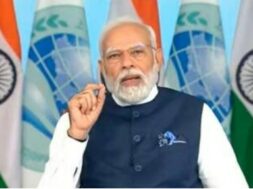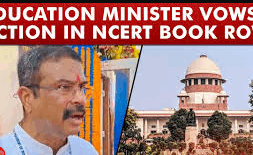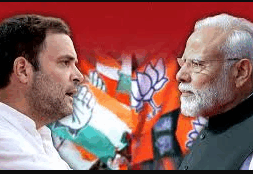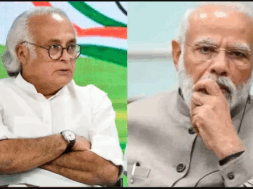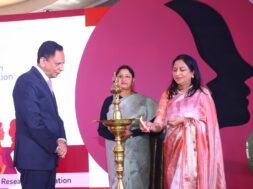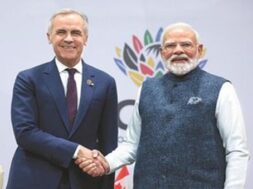
SCO Summit: ‘Don’t hesitate to criticize terror-supporting nations’, says PM Modi
Virendra Pandit
New Delhi: Prime Minister Narendra Modi on Tuesday asked the members of the Shanghai Cooperation Organization (SCO) to actively criticize nations supporting cross-border terrorism.
“Some countries shield terrorism. We have to fight together against terrorism,” he said, according to the media reports.
Addressing the SCO Summit virtually, PM Modi, in the digital presence of his Pakistani counterpart Shehbaz Sharif, and Presidents Xi Jinping (China) and Vladimir Putin (Russia), among others, said the SCO must not hesitate to criticize nations supporting cross-border terrorism.
This was the first public appearance at an international meeting by President Putin after the Wagner Group’s brief mutiny threatened his political hold in Russia recently.
Targeting Pakistan, PM Modi said that some countries use cross-border terrorism as an instrument in sync with their policy. Terrorism has become a threat to regional and global peace and there is a need for decisive action to deal with it.
He asserted that there could not be “double standards” to tackle such a serious issue and urged the SCO members to expand cooperation to deal with terror financing.
On connectivity initiatives in the region, he said such efforts must respect territorial integrity and sovereignty. Food, fuel, and fertilizer crisis are challenges and the SCO should come together to tackle this.
During the SCO summit, PM Modi spoke on the importance of unity and cooperation among member countries. He stated that the SCO is an extended family and shared India’s vision for the summit. This included security, economic development, connectivity, unity, respect for sovereignty and territorial integrity, and environmental protection.
He also called for the welfare of the Afghan people and emphasized the importance of preventing the use of Afghan soil for destabilizing neighboring countries.
Addressing the Summit, President Putin stated that Russia was committed to stand against Western sanctions and provocations. He emphasized the importance of boosting ties within the SCO and supporting the use of local currencies in foreign trade settlements and warned about the increasing potential for conflicts and the risk of a global economic crisis.
Chinese President Xi Jinping urged leaders from Russia, Iran, and other member states to work together to safeguard regional peace. He emphasized the need for common security and called for enhanced solidarity and mutual trust among SCO members.
The Chinese President “called for efforts to safeguard regional peace and ensure common security”, according to China’s state-controlled news agency Xinhua.
Xi also highlighted the importance of following the right direction and promoting cooperation within the organization.
Kazakhstan President Kassym-Jomart Tokayev proposed closer energy cooperation within the SCO. He suggested hosting an SCO energy conference and developing a joint energy strategy for the organization. This initiative aims to enhance energy collaboration among SCO members, including Russia, China, India, and Iran.
In the New Delhi Summit, Iran officially became a full member of the SCO. The SCO’s expansion to include Iran strengthens regional cooperation and dialogue among neighboring countries. Like all members, Iran signed the memorandum of obligation for the SCO membership of Belarus.
“I am happy that today Iran is going to join the SCO family as a new member. For this, I convey my best wishes to President Ebrahim Raisi and the people of Iran. Also, we welcome signing the memorandum of obligation for Belarus’ SCO membership,” stated PM Modi.
Representatives from all member countries as well as two SCO bodies, the Secretariat and Regional Anti-Terrorist Structure (RATS) joined the meeting along with Iran, Belarus, and Mongolia who were invited as Observer States. The chair invited Turkmenistan as its guest.
The SCO was formed by China, Kazakhstan, Kyrgyzstan, Russia, and Tajikistan in 2001. It is a Eurasia political, economic, international security, and defense organization that seeks to counter Western influence in Eurasia.
Earlier, the in-person Summit was scheduled in New Delhi, but the plan was changed early in June. The previous SCO Summit took place in Samarkand, Uzbekistan, in September last year.
India’s association with the SCO began in 2005 as an observer country. It became a full Member State at the Astana Summit in 2017 which was a “historic moment” in India’s engagement with SCO, officials said.
In the past six years, India has played a “very active and constructive role” in all spheres of activities of the SCO.
The theme of India’s Presidency of SCO– SECURE–is derived from an acronym given by PM Modi at the 2018 Qingdao SCO Summit. “It stands for – S: Security, E: Economic development, C: Connectivity, U: Unity, R: Respect for sovereignty and territorial integrity, and E: Environmental protection,” an official said.
During its presidency, India created five new pillars and focus areas of cooperation in SCO: Startups and Innovation, Traditional Medicine, Digital Inclusion, Youth Empowerment, and Shared Buddhist Heritage.
“Two new mechanisms in SCO, the Special Working Group on Startups & Innovation and Experts Working Group on Traditional Medicine, were created on India’s initiative. We intend to contribute substantially in both these areas,” an official said.
